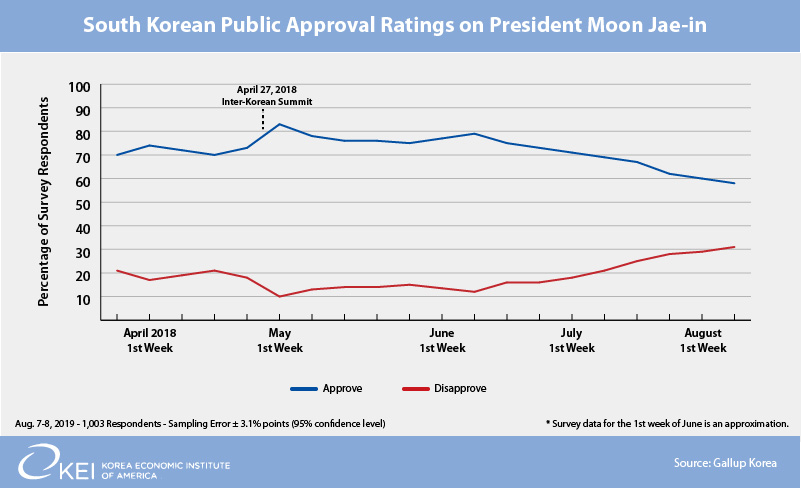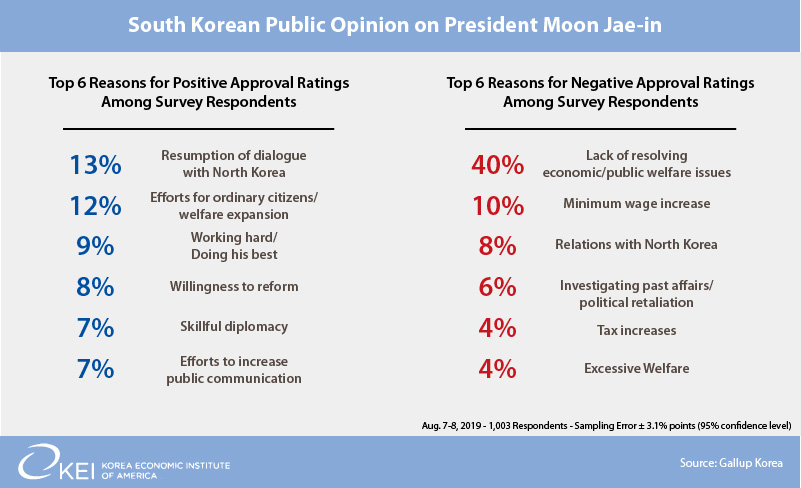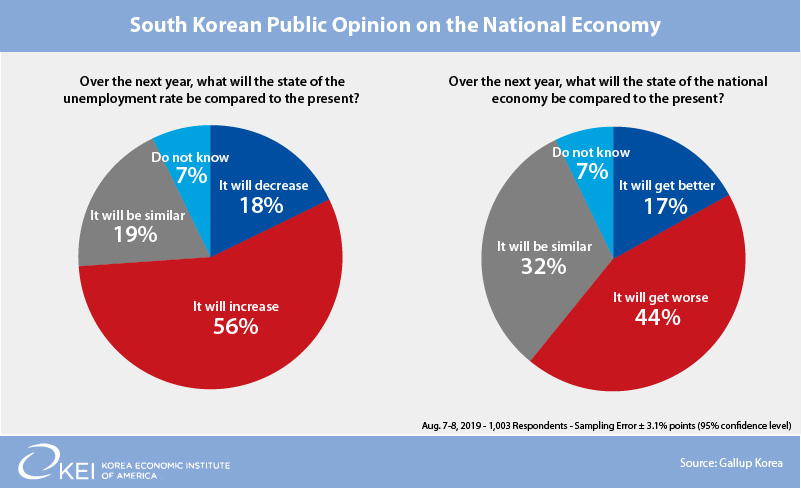The Peninsula
South Korean Economic Concerns Dampen Moon’s Approval Ratings

By Juni Kim
For the first time in his presidency, South Korean President Moon Jae-in has seen his approval ratings fall below 60 percent as economic issues rise to the forefront of public concern. In both the most recent Gallup Korea and Realmeter polls, Moon’s rating currently stands at 58 percent, which follows a steady fall in numbers starting in early June.
Buoyed by broad support for his work in facilitating inter-Korean dialogue, Moon had previously enjoyed high approval ratings in the 70 to 80 percent range throughout the first year of his presidency. In the week after the first inter-Korean summit in late April, Moon’s approval ratings bounced up from 73 to 83 percent, displaying public confidence in Moon’s diplomatic efforts. While Moon remains generally popular, the recent fall in approval ratings show how economic concerns have started to overshadow Moon’s foreign affairs performance.
Among those that disapproved, poll results showed that the leading reason behind negative responses is the lack of progress on economic and public welfare issues. In particular, the accelerated minimum wage hike, which had already increased 16.4% this year and is set to rise an additional 10.9% next year, has worried small businesses about rising labor costs and the inability to keep up with the fast pace. Initially framed as part of Moon’s income-driven growth policy, the minimum wage increase has prompted apprehension among South Koreans over national unemployment and slowing economic growth.
In the same Gallup Korea survey, 44 percent of survey takers responded that the national economy would get worse over the next year, compared to only 17 percent of respondents that believed the economy would get better. Additionally, a majority (56 percent) indicated that the national unemployment rate will likely increase over the next year. In an effort to address these issues, Moon has made public efforts, including holding discussions with both local business owners and the heads of major Korean conglomerates, to listen to concerns over the state of the economy.
It is worth noting that nearly every elected South Korean president has had their overall approval ratings fall during the second year of their respective terms. Prior presidents Lee Myung-bak and Roh Moon-hyun both saw increases, but only after significant ratings drops in their first years. After more than a year and a half into every past presidential term, no president has had an average quarterly approval rating that exceeded 60 percent for the rest of their term. Compared to past circumstances, President Moon is faring relatively well despite the recent drop in approval.
President Moon also saw his approval ratings fall in the weeks leading up to the Pyeongchang Winter Olympics over controversial decisions regarding North Korea’s participation in the Games. His ratings eventually rebounded after the Olympics, with the public generally approving of the success and execution of the Games.
With the third inter-Korean summit under his administration to take place in September, Moon has another prime opportunity to win back public support. His first summit with Kim Jong-un was warmly received by the South Korean public, and positive results from the upcoming summit could help the President bolster his popularity.
Juni Kim is the Program Manager and Executive Assistant at the Korea Economic Institute of America (KEI). The views expressed here are the author’s alone. Graphics by Juni Kim.


